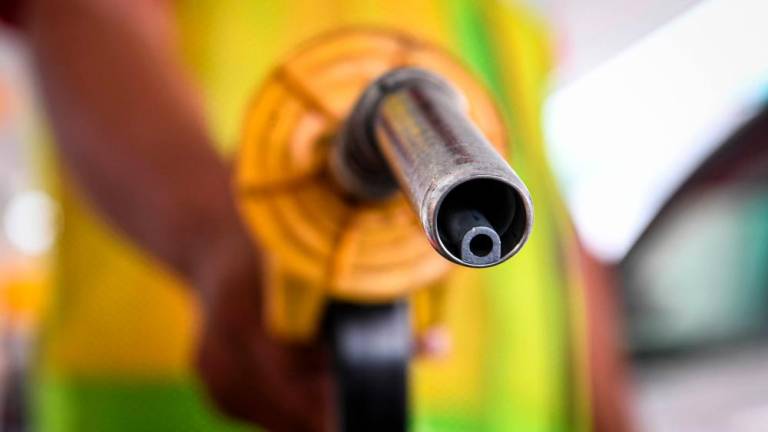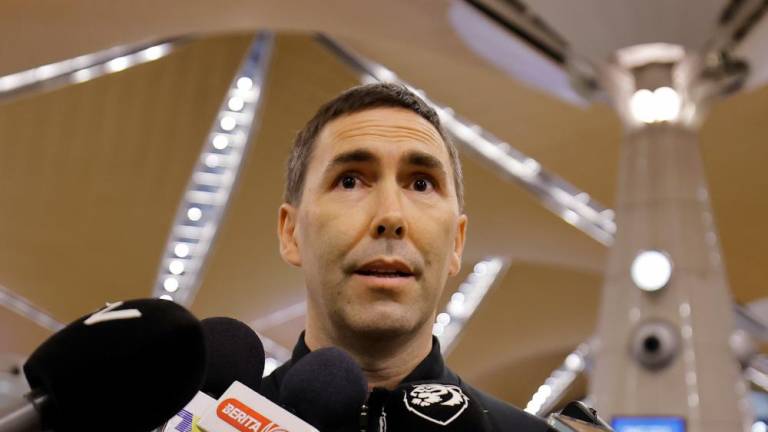PETALING JAYA: Australian rare earth metals producer Lynas Corporation Ltd plans to exploit the trade war between China and the United States to expand its market share but a dispute over radioactive waste from its plant in Malaysia could scuttle those plans.
Rare earth metals are an essential raw material for making components of electronic products from high-tech items to defence systems, and China is the world’s largest producer, accounting for more than 80% of all global production.
As its trade dispute with the United States escalates, Beijing is reportedly considering a move to curb exports of 17 types of rare earth metals to the United States. Lynas hopes to make up for any shortfall that is likely to result from the cutback.
Most of the company’s production comes from the Lynas Advanced Materials Plant (LAMP), located in Gebeng, near Kuantan and operated by Lynas (Malaysia) Sdn Bhd.
Its operating licence is up for renewal in September, and its refusal to ship its waste out of Malaysia could force the authorities to review its operations in the country.
Since it began operations in 2011, the company has faced protests from environmentalists as well as local residents demanding that it ceased operations and remove its waste. The protesters have cited radiation poisoning and contamination of the local water supply as reasons that Lynas should stop its operations in Malaysia.
One of the conditions for granting an operating licence to the company is a requirement to remove its waste and this was acknowledged by its executive chairman Nicholas Curtis in a letter to the Director-General of the Atomic Energy Licensing Board dated Feb 23, 2012.
In December last year, the company was ordered to remove its 450,000 tonnes of waste by September or have its licence revoked.
However, on May 30, Prime Minister Tun Dr Mahathir Mohamad told a news conference in Tokyo that Lynas would be allowed to continue operations in Malaysia because the country did not want to lose a large investment from Australia.
He said Malaysia would ask Australia to accept the waste but if negotiations fail, it could look for “alternative means” to deal with it.
He suggested that the waste could be spread over a wider area instead of confining it to just one area near the LAMP.
Malaysia is in a no-win situation in this dispute. Australia has already made it clear that it will not have the waste land on its shores, saying that importing waste from other countries is illegal under its laws.
Yeo Bee Yin, the Energy, Science, Technology, Environment and Climate Change Minister, is slated to visit Perth on June 20 to negotiate a deal with Bill Johnston, the Minister for Mines in Western Australia.
The two parties have yet to take their seats at the negotiating table but Johnston has already indicated that Yeo would just be wasting her time.
But for people like Bentong MP Wong Tack, the fight continues. He told theSun yesterday that the people in Kuantan would not tolerate Lynas’s continued presence in their backyard if it fails to ship its waste out of the country. The waste has been accumulating since 2012.
“There are no two ways about it. Lynas must lose its licence if it is unable to ship out the waste,” he said.
Wong, who cut his teeth in politics by leading the campaign against Lynas, said the people are still angry.
“They have been patient enough. Now that we’re almost there, there is no way the people will allow the operations to continue unless Lynas complies (with the condition that requires them to remove the waste),” he said.
Wong said there have been requests for all MPs to publicly express their stand on the issue.
He said opposition to the Lynas operations was one of the factors that led to the downfall of the previous government. “If this government also fails, the people will not tolerate it,” he added.













